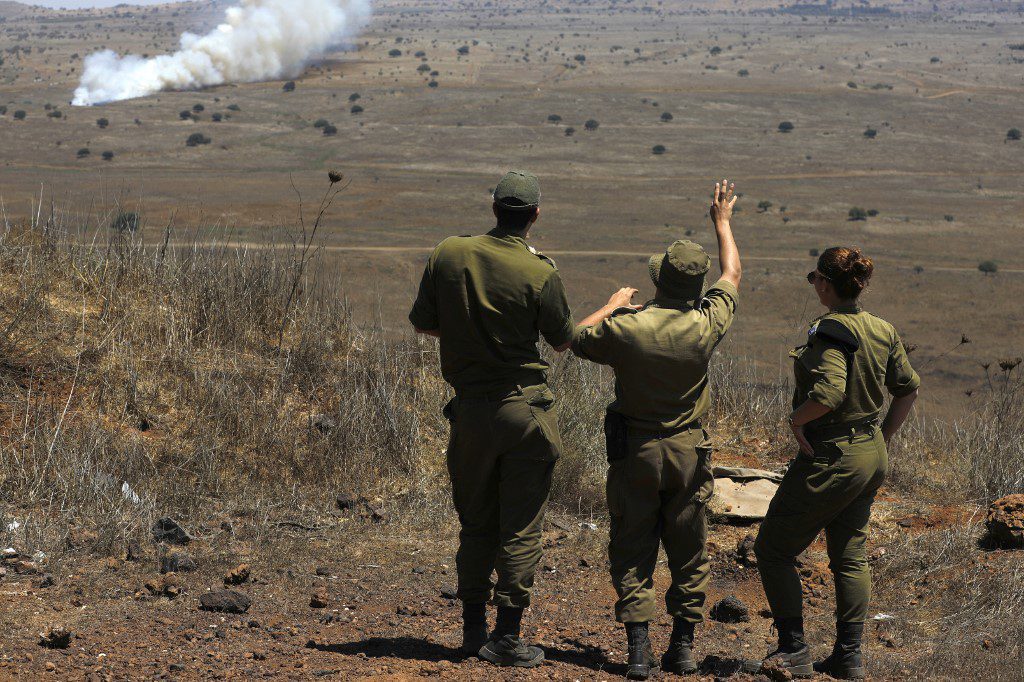
Majed Kayali
During the past two decades, Israel has been strengthening its position in the Arab Mashriq. It has become the most stable and developed country in that region, which went through many turbulences and stormy political transformations.
That is how Iran’s influence rose after the American invasion of Iraq in 2003 and the undermining of its state and societal structures. Then after the collapse of Syria as a state and as a society, Israel – compared with Iran – became the least dangerous country for the Arab regimes.
The fears resulting from the expansion and rising of Iran in the Arab Mashriq have become more urgent than the Arab-Israeli conflict. Nevertheless, that does not lessen the danger of Israel or the importance of the Palestinian cause among the international and regional priorities. In addition, facing the challenge posed by Iran does not mitigate or obscure the challenges arising from the existence of Israel, on the Palestinians, and the Arab region in general.
The rise of Iran would not have taken place in this manner, from Iraq to Lebanon through Syria and Yemen, had it not been for the USA’s leniency or disregard, and more correctly, the American and Israeli investment in Iran. This investment made it possible to undermine the two most important countries in the Arab Mashriq, Iraq and Syria, which allowed Israel to secure its safety in the region possibly for decades. And it is this particular situation permitting Israel to harass the Palestinians and impose its dictates on them as we are witnessing.
That can be seen especially in the following areas: First, Israel evaded the entitlements of the settlement process with the Palestinians, including the Oslo Accords, which were already unfair to their rights. Consequently, Israel freed itself from the option of the two-state solution. It moved forward with imposing a fait accompli so that the Palestinians would accept having a Palestinian Authority that is more than self-governing and less than a state. That authority would deal with issues like population, not the lands, resources, and neighbourhoods. By following that strategy, Israel ends its interaction with the Palestinians. It also overcomes being confronted with any political, economic, security, or even moral burdens resulting from occupation and dominance. Israel can do that as long as there is an authority for the Palestinians, promoted as a Palestinian state. That is the only choice.
The second domain is related to ending the American commitment to the peace process, especially under the “former” Trump administration, by recognizing Jerusalem as the unified capital of Israel and the cessation of its funding to the UNRWA. That means that the illusion that the USA is an impartial patron, a neutral party, or an honest mediator in the peace process came to an end, as it is the strategic ally of Israel. The matter remained fundamentally unchanged under Biden’s administration.
Third, in these circumstances, and because of the conflict in Syria, Israel intends to gain international consent for annexing the Syrian Golan Heights, or a kind of international legitimacy, in agreement with the United States and Russia. Israel does that because it is no longer possible to change the status quo on the Golan Heights, especially in light of the current circumstances.
Fourth, in this context, it is possible to explain Israel’s passing of the law of Israel as a Jewish state, which makes the Palestinians of 1948 just a minority, and makes Israel a Jewish state for Jews in the world. That is, a racist state from the river to the sea, with Jerusalem as its united capital, and legislating colonization everywhere, neither linking this to the values of citizenship related to equality between citizens and democracy nor linking it to the settlement process with the Palestinians in the occupied territories in 1967 (the West Bank and Gaza Strip).
Of course, all these developments would not have occurred without several factors, the most important of which are:
First, Israel has a feeling that it has become the most powerful country in the region, without any rivalry or any threat. Besides, it has become more secure than any period in its history as there is no capable army in the neighbouring countries (except for Egypt, which is separated from Israel by the Sinai Peninsula), and with the eastern front completely absent.
Second, Israel has today the support of the most powerful countries in the world. In addition to the USA, it has the support of Russia as well. Netanyahu, the former prime minister, visited Russia and met with Putin more than ten times since the direct Russian military intervention in Syria in 2015 is sufficient proof of Russia’s support, in addition to its monopoly over nuclear weapons and its superior arsenal of war.
Third, at the regional level, Israel has become in a position of strength. There is a consensus to expel Iran from the Arab Mashriq, at least from Syria. At least, there are efforts to limit its influence when its role ended. On the other hand, Turkey has a critical situation concerning its relations with NATO (e.d Europe and the United States). Meanwhile, its relations with Russia remain questionable or are still swinging according to international and regional developments.
To sum it up, this is a preliminary outline of the Israeli investment in the collapse of the Arab Mashriq, which is a matter that we should realize and – if possible – try to find remedies to its repercussions on the Palestinians and the whole region.
DISCLAIMER
The opinions expressed in this publication are those of our bloggers. They do not purport to reflect the opinions or views of Fanack or its Board of Editors.


